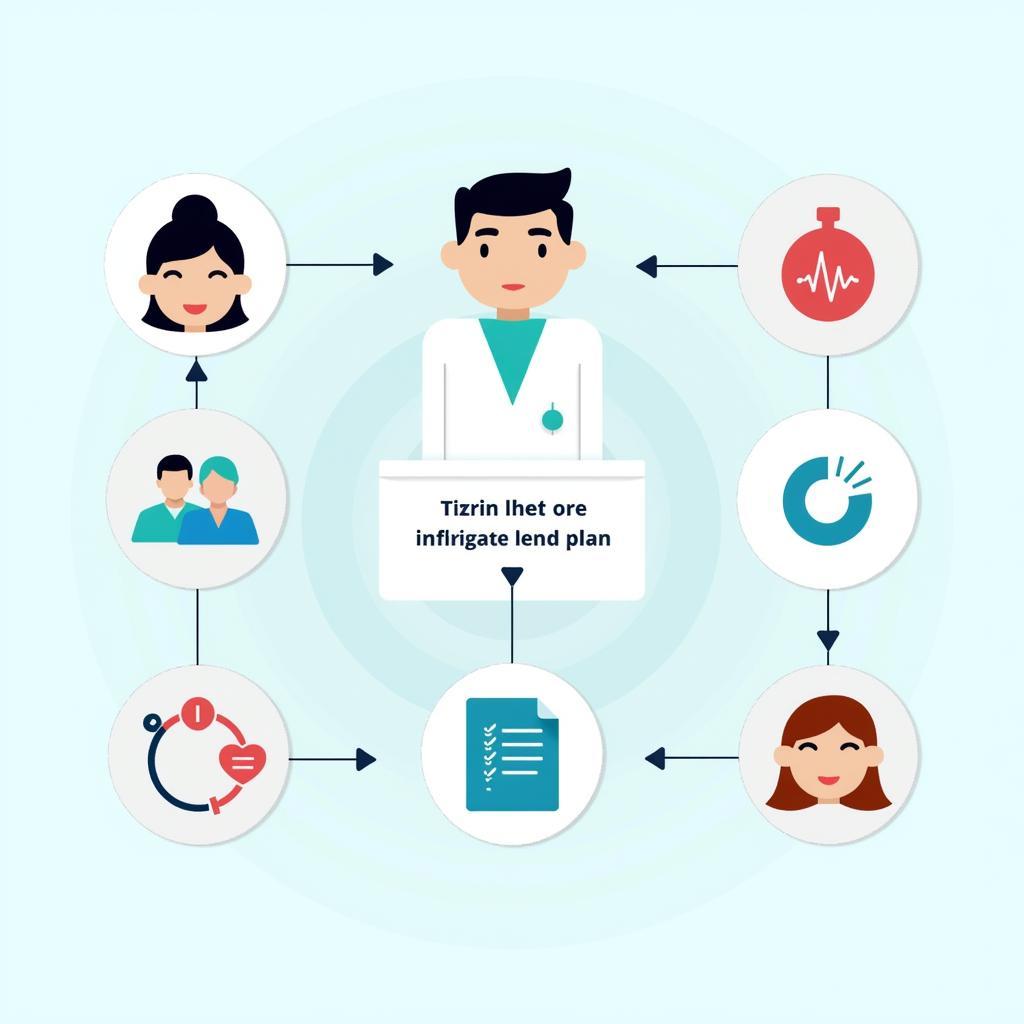Motivational interviewing (MI) is a powerful approach in health care that focuses on empowering patients to make positive behavioral changes. This article explores the essential Motivational Interviewing In Health Care Tools that facilitate this process and enhance patient outcomes. We’ll delve into the practical applications and benefits of these tools, providing a comprehensive understanding of how they can be effectively utilized in various health care settings.
Understanding Motivational Interviewing
Motivational interviewing isn’t about telling patients what to do; it’s about guiding them to discover their own motivations for change. It acknowledges the patient’s autonomy and recognizes that change is a personal journey. This collaborative approach builds rapport and trust between the health care provider and the patient, paving the way for sustainable behavioral change. The core principles of MI include expressing empathy, developing discrepancy, rolling with resistance, and supporting self-efficacy.
Essential Motivational Interviewing in Health Care Tools
Several tools can be utilized to enhance the effectiveness of motivational interviewing. These tools provide a structured framework for conversations and help clinicians explore patient perspectives, identify barriers to change, and build motivation.
Scaling Questions
Scaling questions are a valuable tool for assessing the patient’s readiness for change. By asking questions like, “On a scale of 1 to 10, how important is it for you to make this change?” and “On a scale of 1 to 10, how confident are you that you can make this change?”, clinicians can gain insights into the patient’s perception of the importance and their belief in their ability to succeed.
Decisional Balance Worksheets
Decisional balance worksheets help patients weigh the pros and cons of making a change. This tool encourages patients to consider the benefits of change, the challenges they might face, and the potential benefits of maintaining the status quo. By visually representing the decision-making process, it allows for a more balanced and informed decision.
Goal Setting Tools
Setting realistic and achievable goals is crucial for successful behavior change. Goal setting tools provide a structured approach to defining specific, measurable, achievable, relevant, and time-bound (SMART) goals. These tools can help patients break down larger goals into smaller, manageable steps, increasing the likelihood of success and building confidence.
Readiness Rulers
Similar to scaling questions, readiness rulers offer a visual representation of the patient’s willingness to change. This tool allows for a more nuanced understanding of the patient’s readiness and can be used to initiate conversations about potential barriers or hesitations.
Importance and Confidence Rulers
These tools are often used in conjunction with scaling questions and help to deepen the conversation around the patient’s motivation. By exploring the patient’s perceived importance of change and their confidence in achieving it, clinicians can tailor their approach to address specific needs and concerns.
How Motivational Interviewing Tools Enhance Patient Outcomes
Motivational interviewing tools empower patients to take ownership of their health journey. They foster a sense of collaboration and partnership between the patient and the health care provider, creating a supportive environment for positive change.
“Motivational interviewing isn’t about convincing patients, but rather guiding them to uncover their own reasons for change,” says Dr. Emily Carter, a leading expert in behavioral medicine. “These tools provide a framework for those conversations, fostering a sense of empowerment and self-efficacy.”
 Improved Patient Outcomes through Motivational Interviewing Tools
Improved Patient Outcomes through Motivational Interviewing Tools
Conclusion
Motivational interviewing in health care tools are invaluable resources for facilitating behavioral change and improving patient outcomes. By utilizing these tools, clinicians can empower patients to take an active role in their health, leading to more sustainable and impactful results. Motivational interviewing, combined with the right tools, fosters a collaborative and patient-centered approach to care.
FAQ
- What is the primary goal of motivational interviewing? To empower patients to make positive behavioral changes.
- How do scaling questions help in MI? They assess the patient’s readiness and confidence for change.
- What are SMART goals? Specific, Measurable, Achievable, Relevant, and Time-bound goals.
- Why is a decisional balance worksheet useful? It helps patients weigh the pros and cons of change.
- How do MI tools enhance patient outcomes? They foster collaboration and patient empowerment.
- What is the role of a readiness ruler? It visually represents the patient’s willingness to change.
- What are some key principles of MI? Expressing empathy, developing discrepancy, rolling with resistance, and supporting self-efficacy.
Need help with Car Diagnostic? Contact us via WhatsApp: +1(641)206-8880, Email: [email protected] or visit us at 910 Cedar Lane, Chicago, IL 60605, USA. Our customer service team is available 24/7.

Leave a Reply